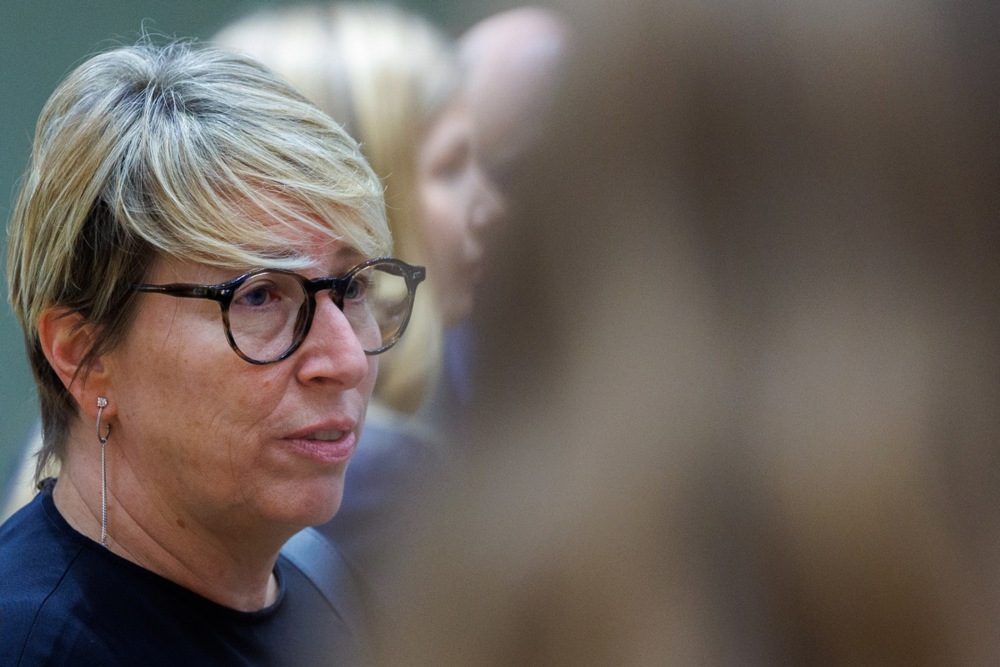The German Liberal Party (FDP) is promoting the idea of treating asylum applications in third countries outside Europe.
FDP parliamentary group leader Christian Dürr told daily regional newspaper Augsburger Allgemeine: “I think it would be right for us to think about carrying out asylum procedures in third countries outside Europe.
“With a judicial solid regulation, we could create clarity about the protection status and prevent people with no prospect of staying [from taking] the dangerous route across the Mediterranean,” he said.
The FDP is promoting the toughening-up of asylum procedures ahead of its party congress over the weekend of April 27.
The German Liberals are following in the footsteps of the country’s main opposition party, the Christian Democratic Union (CDU). At the end of 2023, it proposed to draft plans for sending asylum seekers to third countries into its new “basic principles programme”.
One prominent party member said in October last year that “irregular migration movements” should be stopped “by physical force” if necessary. “The decisive key is not repatriation, but the restriction of irregular migration.”
Two parties rapidly gaining popularity in Gerany, the Alternative für Deutschland (AfD) on the hard-right and Bündnis Sahra Wagenknecht (BSW) on the hard-left, also want to toughen up action over illegal migration.
Still, policies in Berlin are not likely to change any time soon, as the other governing parties in the ruling coalition, the Greens and the Social Democratic Party (SPD), oppose such plans.
On April 25, German Chancellor Olaf Scholz said he opposed the so-called “Rwanda model”, referring to the UK’s decision to send migrants to the African country.
Germany’s “traffic-light” coalition Government even passed its centrepiece bill to relax citizenship and naturalisation legislation on January 19.
Across the border in Belgium, the centre-right N-VA party, a member of the European Conservatives and Reformist (ECR) group in the European Parliament, is also pushing for similar policies.
Just like the FDP, it will hold an election congress this weekend and in it the party wants to make an agreement where the next Belgian government could send foreign national prisoners without a legal residence permit to another country – Kosovo, for example – to serve their time.
Belgium's Justice Minister Paul Van Tigchelt is facing calls to resign after footage emerged showing a man of Indian descent being brutally tortured in a Belgian prison in Antwerp over a period of several days. https://t.co/eJ2J2vN6Pi
— Brussels Signal (@brusselssignal) March 14, 2024
“Having to serve a prison sentence at such a distance is discouraging to say the least,” MP Theo Francken said about the proposal.
On X he said: “We will build/rent a prison in Kosovo after the elections to put all that illegal scum in. It will cost a penny but it will make our country safer.”
We gaan na de verkiezingen een gevangenis bouwen/huren in Kosovo om al dat illegaal crapuul in te steken. Het kost een cent maar het maakt ons land veiliger.
Goed idee? ?
— Theo Francken MP (@FranckenTheo) April 25, 2024
The proposed changes are inspired by British and Danish plans, where their respective governments are working out a deal with Rwanda. In the British plan, illegal migrants and asylum seekers will be sent from the UK to Rwanda for processing. Rwanda would host them and evaluate their asylum claims.
In return, the UK would accept an unspecified number of the “most vulnerable refugees” currently residing in Rwanda.
Denmark last year agreed with the country to explore setting up a programme in which asylum seekers arriving in in the Nordic nation could be transferred to Rwanda.
The move to work with third countries on migration is growing increasingly popular.
For example, Italy already has an agreement with Albania regarding illegal migrants, endorsed by the European Union, while Denmark is already renting prison cells in Kosovo for foreign detainees.
Austria’s Chancellor Karl Nehammer, of the Austrian People’s Party (ÖVP), has also adopted a firm line on immigration, spurred by the right-wing Freedom Party, which has the wind in its sails among the electorate.
In addition, Sweden and Finland want to curb migration, with the Swedish migration minister Maria Malmer Stenergard already having said the EU should co-operate with third countries to increase the number of returnees.
Yet there is also strong opposition against such plans across Europe, in particular from human-rights advocates.
Filippo Grandi, the UN High Commissioner for Refugees, and Volker Türk, the UN High Commissioner for Human Rights, are calling on the UK Government to reconsider its plan to transfer asylum seekers to Rwanda.
That is alongside resistance from the European Convention on Human Rights (ECHR), which has sparked a debate in the UK about whether to leave the ECHR altogether.
According to data released by the EUAA, the plurality of migrant arrivals into the EU registered for asylum in Germany. The country’s 334,000 international protection claims in 2023 accounted for almost a third of all those made throughout the bloc.https://t.co/Jzm9HqpxJ6
— Brussels Signal (@brusselssignal) February 28, 2024





